Bhopal tragedy and the future
A tragic ‘anniversary’ this week drew attention to what it would take to ensure that the current excitement about ‘make in India’ becomes a boon and not a curse
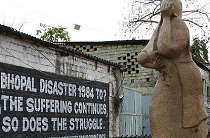 Courtesy: Luca Frediani/Wikimedia Commons
Courtesy: Luca Frediani/Wikimedia Commons
A tragic ‘anniversary’ this week drew attention to what it would take to ensure that the current excitement about ‘make in India’ becomes a boon and not a curse
2014 was celebrated as the year of India-China friendship with many joint high level diplomatic, defence and cultural events to strengthen relations. The cities of New Delhi and Mumbai will see the debut of the Chinese Kunqu Opera to mark the close of the year
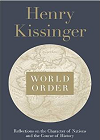 Courtesy: Allen Lane
Courtesy: Allen Lane
The scope of Kissinger’s book is immense, but it is marred by his prejudices and his arrogant view of non-European cultures. The author’s main premise is that the world is in a state of disorder, but his prescriptions remain unclear
 Courtesy: http://photodivision.gov.in/
Courtesy: http://photodivision.gov.in/
Last week, petroleum prices reached a five-year low, and the fall is likely to last as new production and alternative sources enter the market. India, which has a huge petroleum products bill, now has a chance to shock-proof its economy, diversify dependence away from West Asia, and become energy-efficient
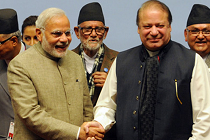 Courtesy: MEA/Government of India
Courtesy: MEA/Government of India
The recent SAARC Summit was once again derailed by India-Pakistan dissonances. Is it time for India to look beyond this collective? Or are there ways to overcome the distrust and address border issues, build institutions to implement common goals, and create an economic union of confident democracies?
The 18th SAARC Summit held in Nepal concluded on November 27 with the release of the Kathmandu Declaration. Did the summit live up to its expectations? Was concrete progress made, and if so in which areas? Where is SAARC heading now? Gateway House asks and answers five questions on the outcome of the summit
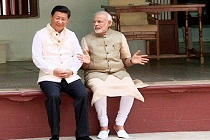 Courtesy: Narendra Modi (wikimedia.org)
Courtesy: Narendra Modi (wikimedia.org)
A major theme at the multilateral summits this month was connectivity, with China at the forefront. India is trailing behind due to a shortfall in investment and political will, among other factors. Prime Minister Modi must follow up on his meetings at the SAARC Summit by robustly taking forward India’s connectivity agenda
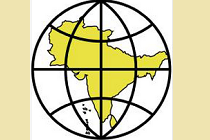 Courtesy: PSAARC
Courtesy: PSAARC
Parallel to the official SAARC meeting was the People's SAARC in Kathmandu. Comprising NGOs, civil society leaders, and activists, the PSAARC is a platform that rejects narrow nationalism and religion in favour of a transcendent South Asian identity
 Courtesy:
Courtesy:
On 26 November 2008, Mumbai witnessed a horrific terror attack carried out by 10 young Pakistani men, killing 166 people and injuring over 300. The attack incited condemnation from countries around the world, and gave rise to several citizens’ movements in India. The attack also highlighted the complexities of the international law machinery in combating terrorism
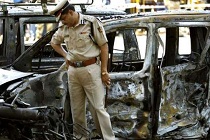 Courtesy: wikimedia
Courtesy: wikimedia
Despite an early regional consensus on counter-terror, SAARC’s record in tackling terrorism remains dismal. With the widening network of terrorist groups in the subcontinent, it is imperative that India takes the lead in forging substantial counter-terrorism cooperation, particularly on the issue of financing